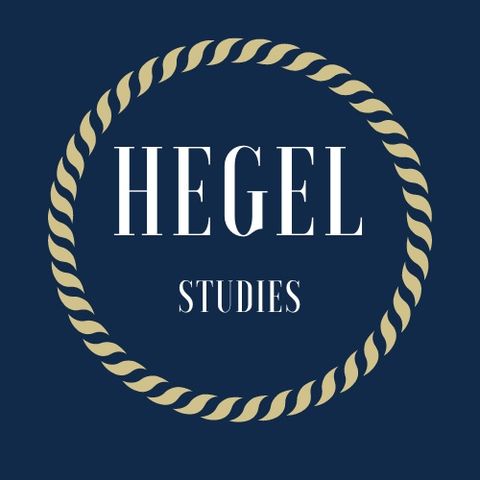Alienation of Property as Transition to Contract - part 2

Sign up for free
Listen to this episode and many more. Enjoy the best podcasts on Spreaker!
Download and listen anywhere
Download your favorite episodes and enjoy them, wherever you are! Sign up or log in now to access offline listening.
Description
Become a supporter of this podcast: https://www.spreaker.com/podcast/hegels-dialectic-philosophy--4573240/support. As we delve into the latter portion of our discourse on alienation and the shift toward contract, allow me to first remark that...
show moreAs we delve into the latter portion of our discourse on alienation and the shift toward contract, allow me to first remark that within Hegel's philosophy, the notion of property extends beyond a mere ideological endorsement of the ruling class – those who amass the lion's share of possessions or dominate land ownership within a nation. Hegel's interest lies not in championing the cause of the so-called Junkers or landowners; rather, his concept of property law serves a critical function.
Consider this fundamental truth: every individual possesses the right to own something. Property law encompasses all, excluding none. Consequently, no person may be deemed an object, a slave, or a mere vessel for another's will or control. This principle emerges clearly in our examination of property alienation.
Returning to the idea of alienation, it signifies the withdrawal of one's will from a specific object or possession. In both acquisition and relinquishment – or alienation – of property, the will reflects upon itself. Even as it surrenders its property to others, it remains connected to itself. Through alienation, it becomes evident that objects possess no rights; only persons bear such rights. Given that things lack volition, we hold dominion over their fate.
Yet this authority to alienate property applies solely to items appropriately classified as property – those inherently external in nature. Property concerns only that which exists outside of an individual's being. Aspects not entirely external but intrinsic to one's essence are exempt from property law and thus cannot undergo alienation. One's personality and the core of one's existence remain inviolable; they cannot be demoted to mere objects subject to another's ownership rights.
The rationale behind this limitation is readily apparent: the very purpose of rights is to manifest freedom. No right exists for negating that freedom; otherwise, rights would become fundamentally ambiguous – simultaneously representing freedom and obliterating it. There can be no right to nullify one's own personhood, for such an act would constitute a contradiction in terms.
In considering the matter of personhood, one must inevitably confront the absolute injustice of slavery. Within the confines of slavery, a person ceases to exist, replaced by an alienated being who no longer belongs to himself but to another. The slave's will resides not within himself, but in the hands of his master, who degrades the individual to the status of property or mere thing.
Whether slavery is voluntary or forced becomes an inconsequential distinction. According to Hegel, voluntary slavery represents a contradiction, an act in opposition to one's very nature. The free will cannot exist in attempting not to be free will; such a notion is inherently contradictory. One may not suspend their own rationality, conscience, or religious faith – these are not external factors but rather constitutive elements of one's essence and personality.
When others dictate our beliefs or actions on our behalf, we surrender our own personalities. The matter becomes more complex when considering physical and spiritual aptitudes - while they are part of our being as individuals, they are not synonymous with our identities. In a limited capacity, one may renounce the right of property regarding labor and production.
Our activities do not wholly define us; we cannot be reduced solely to the tasks we perform. However, this does not extend to the totality of our time for labor and production. To alienate all available time for labor equates to enslavement, for the totality of expression is power itself.
A person is not merely the owner of his own life; life is not an external aspect of one's personality. Rather, life encompasses the totality of all external activities and is an intrinsic part of being oneself. As such, Hegel contends that a person has no right to take his own life – doing so would imply standing above oneself in contradiction.
In conclusion, personhood stands as a bastion against the injustice of slavery and serves as a reminder that we are more than the sum of our actions, beliefs, and abilities. To preserve the sanctity of personhood, we must resist any form of enslavement that seeks to strip us of our inherent rights and freedoms.
Essential characteristics of alienation, a concept critical in comprehending the forthcoming discussion on the transition to contractual agreements.
Information
| Author | Robbert Veen |
| Organization | Robbert Adrianus Veen |
| Website | - |
| Tags |
-
|
Copyright 2024 - Spreaker Inc. an iHeartMedia Company
